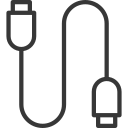Contact us
Dual Diagnosis Treatment
A TREATMENT CENTRE LIKE NO OTHER
Dual Diagnosis Treatment
Mental health and addiction are significant challenges that greatly affect many people from all walks of life.
Dual diagnosis, also called co-occurring disorders, relates to when an individual experiences both a mental health issue and addiction at the same time. Managing a co-occurring disorder may be particularly tough because both problems tend to exacerbate each other and can worsen the overall condition.
Frequently, only the addiction itself is addressed, and this can result in neglecting the mental health disorder that often serves as its root cause. It’s crucial to distinguish the signs of any mental health condition or behavioural disorders through precise diagnosis and to provide proper treatment for people with co-occurring conditions.
What Are Common Co-Occurring Disorders?
Mental health and addiction have many combinations. These conditions are otherwise referred to as co-occurring disorders, and some of the most common include the following:

Attention Deficit Hyperactivity Disorder (ADHD)
Sometimes, people suffering from ADHD use different substances, typically stimulants, to help improve concentration and focus. Certain stimulants carry elevated risks of developing an addiction.

Anxiety
Anxiety is a very common disorder generally arising from stressful situations. To help cope with stress and anxiety symptoms, many people turn to alcohol or drug use to help relax and reduce tensions. This approach may seem to have some effect temporarily but can quickly lead to developing a dependency on a substance. Anxiety disorder is perhaps one of the principal psychological symptoms of addiction.

Depression
Depression is another major symptom similar to anxiety that often leads to substance abuse problems. Consuming alcohol or drugs can only worsen the symptoms and can make it difficult to cut down or stop using.

Post-Traumatic Stress Disorder (PTSD)
Individuals who have experienced some trauma find themselves struggling with pain, insomnia, anxiety, or depression, known as PTSD. Using alcohol and drugs may initially help numb any pain and cope better with symptoms but can eventually lead a person to addiction while exacerbating the original symptoms of PTSD.

Bipolar Disorder
Bipolar disorder is a condition that is typically recognised for rapid change in mood. Mood swings can be elevated one minute and fall to the lowest ebb the next. When individuals resort to taking addictive substances to self-medicate to feel better, they put themselves at a high risk of experiencing episodes of depression or mania as well as developing an addiction.

Obsessive Compulsive Disorder (OCD)
Obsessive Compulsive Disorder is a condition that may prove extremely debilitating. Some individuals may become obsessive with themselves, together with their addictive behaviours or substance use. This combination can prove more difficult to manage simultaneously.

Co-dependency
Co-dependency is a condition that is typical of an individual having an unhealthy dependency on another person. In the event of separation or losing that reliance, it is likely they may take up drinking alcohol, engage in compulsive behaviour or resort to using drugs to help them cope with the loss of dependency. As with most substance abuse, there is an elevated risk of developing an addiction.
There are many other conditions, such as Borderline Personality Disorder (BPD), eating disorders or schizophrenia, that are linked to addiction. Many people will resort to some form of substance to self-medicate and help with symptoms, often without realising the dangerous consequences.
Understanding the type of mental disorder that is causing a substance addiction can be treated at the same time. This approach is most effective in avoiding further addiction and has a much higher success in preventing relapse.
However, any co-occurring mental health condition must be identified and diagnosed correctly.
How To Recognise Symptoms Of Co-Occurring Disorders
An individual suffering from a mental health condition while experiencing a substance use disorder is said to have symptoms of a dual diagnosis.
Given the intricate range of symptoms and conditions under the umbrella of mental health, it’s inadequate to perceive it as merely superficial. This limited perspective overlooks the profound complexities embedded within the behaviours associated with prevalent disorders but may help identify the more open signs of addiction and mental health concerns.
- A rapid shift in behaviour
- Alterations in mood and personality
- Participating in risky activities that have not been thought through
- Difficulty in keeping up with daily responsibilities
- Lack of interest in work or school with poor performance
- Retreating from family, friends and social circles
- Deterioration in hygiene and neglecting appearance and health
- Finding frequent comfort in substance use to function normally
- Using drugs in environments that are not safe
- Developing high tolerance with out-of-control use of a specific substance
- Inability to control the experience of withdrawal symptoms
These symptoms are generic and are typically observed from the point of view of someone concerned for the individual. Although the signs may be clear, there is always a certain doubt as to what the problem is.
To guess what’s going on can sometimes make matters worse. The symptoms of aggressive behaviour may be a result of borderline personality disorder, but because the person also heavily drinks alcohol, the behaviour may be limited to overdrinking.

How Are Co-Occurring Disorders Diagnosed?
Only a professional mental health expert can diagnose a co-occurring disorder. This involves a comprehensive assessment to determine the symptoms and determine how the conditions influence and interact. Specialists with expertise and knowledge in mental health and substance abuse generally carry out this diagnosis practice to determine the most effective form of treatment.
Upon assessment, whether an individual meets the criteria associated with both disorders will be determined. If applicable, specific treatment will be tailored to match their needs and treated concurrently.
Which Mental Health Issue Is Treated First?
There is no argument about which condition shows up first. People are diverse and can develop disorders either way. Some may already struggle with their mental health and turn to substance abuse to help cope better with their symptoms, while others may be habitual users of addictive substances and develop mental health concerns later on. Often, conditions may appear at the same time.
Deciding which condition to treat first depends on a comprehensive assessment of the diagnosis and an agreement to determine the extremity of symptoms. Priority will be given to the condition exacerbating the symptoms of the other.

What If Someone Is In Denial?
It is not unusual for a person to be in denial about any underlying mental health issue, or more particularly, substance abuse. Often, an individual is unwilling to acknowledge they have health issues, making the challenge of a co-occurring disorder somewhat complicated.
The best measure for addressing denial is by providing support, patience and empathy to help them accept the treatment they need for a successful recovery.
Sometimes, it can be helpful to ask a mental health specialist or addiction consultant to intervene and who has knowledge and experience treating people with severe mental health conditions. Their guidance and additional support can be valuable when someone shows reluctance and resists seeking help or acknowledging their diagnosis.
Comprehensive Dual Diagnosis Treatment
Upon a thorough assessment, mental health specialists will design a comprehensive treatment plan to treat a patient with a co-occurring disorder.
Regardless of which treatment comes first, several therapies provide evidence-based solutions when dealing with psychological intricacies resulting from addiction and mental health.
Psychotherapy is the term used as a title under which psychological therapeutic practices are performed and is not in itself one sort of treatment. Describing psychotherapy will include a wide spectrum of activities to address both mental and substance use disorders. Most therapies are referred to as “talking therapies” that focus principally on distorted thought patterns.

Cognitive Behavioural Therapy (CBT)
CBT can help change how a person thinks and behaves by identifying existing negative thoughts and replacing them with more positive ones. This practice works for mental issues and substance addiction. The object of the therapy is to broaden the mind’s ability and apply techniques to help cope and manage triggers and eliminate depression and anxiety.
Group Sessions
Although some people may have isolated themselves and seem far away from society, group sessions can restore a sense of belonging. Sharing experiences, whether good or bad, can be beneficial to a person who may think they are alone on this trip but find they are very much involved, probably more than expected.
Many individuals may have spent a very long time being alone as mental health struggles typically can tear someone away from those they love. However, finding hope and encouragement within a group has wonderful effects.
Family Relation Therapy
Putting things right is not easy, but when family relationships are broken, it is even harder. The family often gives up after enduring so much stress, pain, and suffering, and when relationships rupture, it may seem impossible to find a solution. Through family counselling, opportunities arise where previous problems have no solution. Those issues are now in the past, and positive outcomes seem more promising on the horizon.
There are so many therapies that can assist in overcoming mental health and substance abuse disorders. The list of therapies today is endless to help with all mental health and substance addiction.
Is There Any Self Help For Mental Health And Addiction?
It is always recommended to seek professional treatment if you think you have developed a substance addiction or may have mental health concerns.
Professional treatment is generally needed to address severe mental health disorders and substance addiction, but there are a few self-help strategies that can help towards recovery when receiving appropriate treatment.
Finding out about your condition can help you understand triggers, symptoms, and when to seek treatment. Always check out reputable websites and read any reviews or comments linked to trusted sites. Understanding conditions or what other people have experienced can help motivate you to seek help.
Develop different ways to cope with daily stressors. Relaxation techniques, such as yoga or meditation, can be beneficial. Participating in enjoyable activities can boost self-esteem and confidence.
Avoid the triggers that you know are going to be detrimental. Look out for other ways of enjoyment, such as social activities, or find an interest that distracts you from the stresses and anxieties of daily living.
Most strategies are good, but their effectiveness may not suit everyone.
Managing mental health alone is challenging, and you should always consult with a mental health specialist when any form of self-help fails.
Our Effective Treatment For Substance Use And Mental Health
Here at PROMIS, we have over 35 years of experience helping people overcome mental health and addiction. Our success rate for recovery has surpassed expectations, so we consider that we are doing something right and intend to take our expertise and knowledge to whatever level it takes to help more people break free from the troubles they may be experiencing.
Some of us have been there, seen the abyss of despair and recovered. We understand what you feel, we have been to that dark place and succumbed to the heavy grip of addiction so we know there is always hope and solutions.
We offer anyone with a substance abuse and mental health condition the most comprehensive co-occurring mental health treatment that can identify root causes and treat both issues simultaneously.
Mental health treatment today has advanced; there is so much awareness regarding pre-existing mental health disorders as there is associated with drug and alcohol abuse.
At PROMIS, we ensure that every individual receives our utmost care and attention at every stage of recovery. Our patients are treated with the respect and dignity they deserve, no matter how they show their symptoms or behave. We are dedicated to treating, correcting, and ensuring that each individual discovers a healthier and happier life.
Please call us. We are open to receiving anyone requiring urgent help or perhaps needing more information. You can call at any time. Our friendly staff is always available and will readily provide you with answers to your questions or give you further information.
